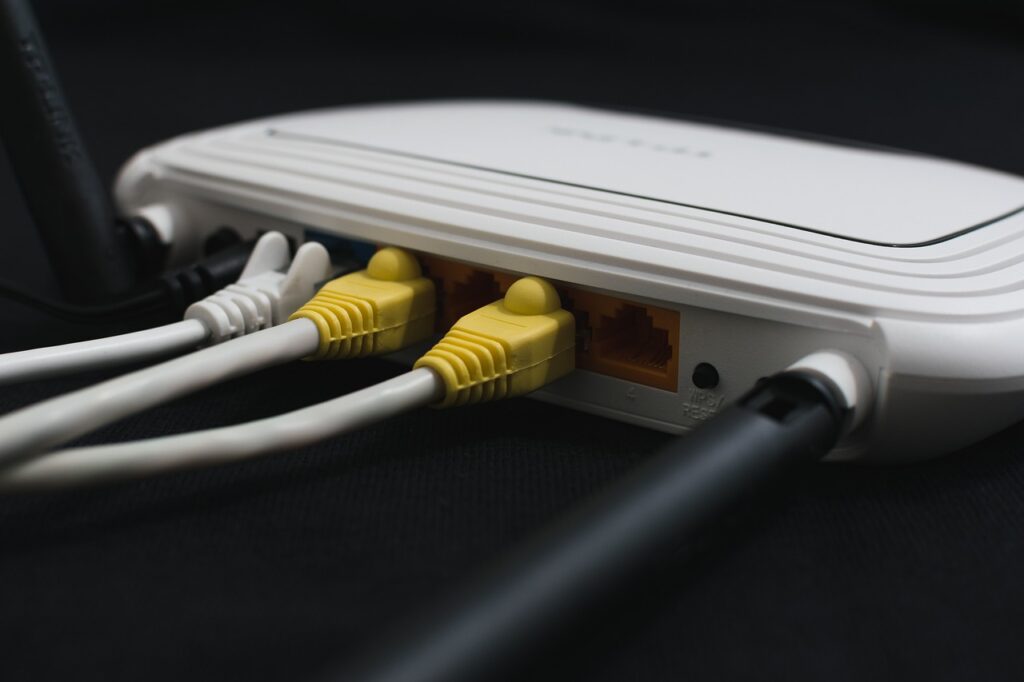In today’s digital age, having a reliable Internet connection is a necessity for most people. One of the key components of having a good Internet connection is a Wi-Fi router, which is responsible for transmitting wireless signals and allowing multiple devices to connect to the Internet simultaneously. When it comes to getting a Wi-Fi router, people have the option of either renting or buying it. Each approach has its advantages and disadvantages, and it’s important to understand them before making a decision. In this article, we will explore the pros and cons of renting vs. buying a Wi-Fi router.
Advantages of Renting a Wi-Fi Router:
- Cost Savings: One of the biggest advantages of renting a Wi-Fi router is cost savings. Renting a router is typically much cheaper than buying one outright, and this can be especially beneficial for people who only need a router for a short period of time. When renting, there is no need to worry about the upfront cost of purchasing a router, which can be quite expensive.
- Free Upgrades: Another advantage of renting a Wi-Fi router is that service providers often offer free upgrades to newer models. This means that you can always have access to the latest technology without having to pay the full cost of a new router. This can be particularly beneficial for people who are not tech-savvy and don’t want to deal with the hassle of setting up and configuring a new router.
- Easy Maintenance: When renting a Wi-Fi router, maintenance and repair are usually included in the rental agreement. This means that if anything goes wrong with the router, the service provider will take care of it at no additional cost to you. This can be a big relief for people who are not technically inclined or don’t have the time to troubleshoot and fix issues themselves.
Disadvantages of Renting a Wi-Fi Router:
- Long-term Cost: While renting a Wi-Fi router can be cost-effective in the short term, it can end up costing more in the long run. Over time, the cost of renting a router can add up, and you may end up paying more than you would have if you had just bought a router outright.
- Limited Control: When renting a Wi-Fi router, you are limited in terms of what you can do with it. You may not be able to customize the settings or change certain features, which can be a disadvantage for people who like to have full control over their devices.
- Dependence on Service Provider: When renting a Wi-Fi router, you are dependent on the service provider for everything from maintenance and repair to upgrades and replacements. If the service provider has poor customer service or is slow to respond to requests, this can be a major inconvenience.
Advantages of Buying a Wi-Fi Router:
- Long-term Cost Savings: One of the biggest advantages of buying a Wi-Fi router is long-term cost savings. While the upfront cost of purchasing a router can be high, over time, it can end up costing less than renting. Additionally, owning a router means that you don’t have to worry about paying a monthly rental fee, which can save you a significant amount of money in the long run.
- Full Control: When you buy a Wi-Fi router, you have full control over it. This means that you can customize the settings, change features, and even add new hardware if you want to. For people who like to have control over their devices, this can be a major advantage.
- Flexibility: When you own a Wi-Fi router, you have the flexibility to choose your service provider. This means that you can shop around for the best deals and choose a provider that offers the features and services that you need.
Disadvantages of Buying a Wi-Fi Router:
- Security risks: One of the main disadvantages of using a Wi-Fi router is that it can pose security risks. If your Wi-Fi network is not secured, anyone within range of your network can access it and steal sensitive information, such as passwords and credit card details. Therefore, it’s crucial to secure your network with a strong password and other security measures.
- Limited range: Another disadvantage of using a Wi-Fi router is that it has a limited range. The range of the router depends on various factors such as the size of your house or office, the number of walls and obstacles, and the interference from other electronic devices. If you have a large house or office, you may need to invest in a Wi-Fi extender or a mesh network to extend the range of your router.
- Interference from other devices: Wi-Fi routers can be affected by interference from other electronic devices, such as microwaves, cordless phones, and Bluetooth devices. This interference can cause the Wi-Fi signal to weaken, resulting in slower Internet speeds or dropped connections.
- Maintenance and troubleshooting: A Wi-Fi router requires regular maintenance and troubleshooting to ensure it is working correctly. If you’re not tech-savvy, you may find it challenging to troubleshoot and fix any issues that arise with your router.
- Dependence on Internet service provider: Your Internet speed and connectivity depend on your Internet service provider (ISP). Even if you have a high-quality Wi-Fi router, your Internet speed may still be slow if your ISP is not providing you with enough bandwidth.
Conclusion:
In conclusion, a Wi-Fi router has several advantages and disadvantages. While it offers convenience, mobility, and better Internet speed, it can also pose security risks, has a limited range, and requires regular maintenance and troubleshooting. When deciding whether to buy a Wi-Fi router or not, it’s essential to consider your specific needs and requirements. If you have multiple internet-enabled devices and require high-speed internet connectivity, a WiFi router may be the best option for you. Connect with us if you want to get complete commercial Wi-Fi solutions.

